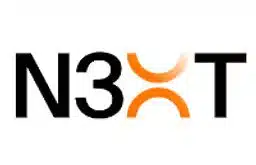Some ATM experts are expecting the number of wireless terminals to increase in coming years, and not just for mobile applications like flea markets and fairs. Fixed-location deployments, such as retail stores, may increasingly adopt untethered ATMs because of their TCP/IP connections through readily available public cellular networks and their cost advantages over conventional leased and dial-up lines, says James Florwick, senior network engineer at Ventus Networks Inc., Norwalk, Conn. Ventus provides telecommunications networking services to ATM networks and other clients. Wireless deployments, he says, will become especially popular if network providers can ensure encryption of all data through a public network to a host processor. He estimates there are already about 10,000 ATMs in the country operating on wireless connections, out of an installed base of about 350,000. Florwick says the higher transaction speeds offered by widespread CDMA and GPRS public networks are allowing ATM deployers to realize leased-line capabilities at less cost, since machines can be installed in less time and without the need to order inside cabling or circuits. He estimates a wireless ATM can be installed in about five days, compared to 30 for a leased-line machine. CDMA data speed has reached 153 kilobytes per second, he says, about 39 kilobytes per second faster than GPRS. CDMA, or code-division multiple access, is a cellular protocol that competes for dominance with another protocol, GSM, of which general packet radio service (GPRS) is a notable example. Though some deployers may have concerns about wireless transport, Florwick says such transmission can be even more secure than a wired transaction if all transaction data, not just PINs, are triple-DES encrypted and carried through an overlay channel from machine to mobile network, from there to the Internet, and then to the processor. He refers to this channel as a “triple-DES-encrypted tunnel.” Triple-DES refers to an encryption protocol that scrambles data in such a way that it can be transmitted securely and then unscrambled only by a receiving party with a key.
Check Also
PAR’s Revenue Rises As It Eyes More AI Use
With a notable Papa John’s win already this year, PAR Technology Corp. looks to build …






